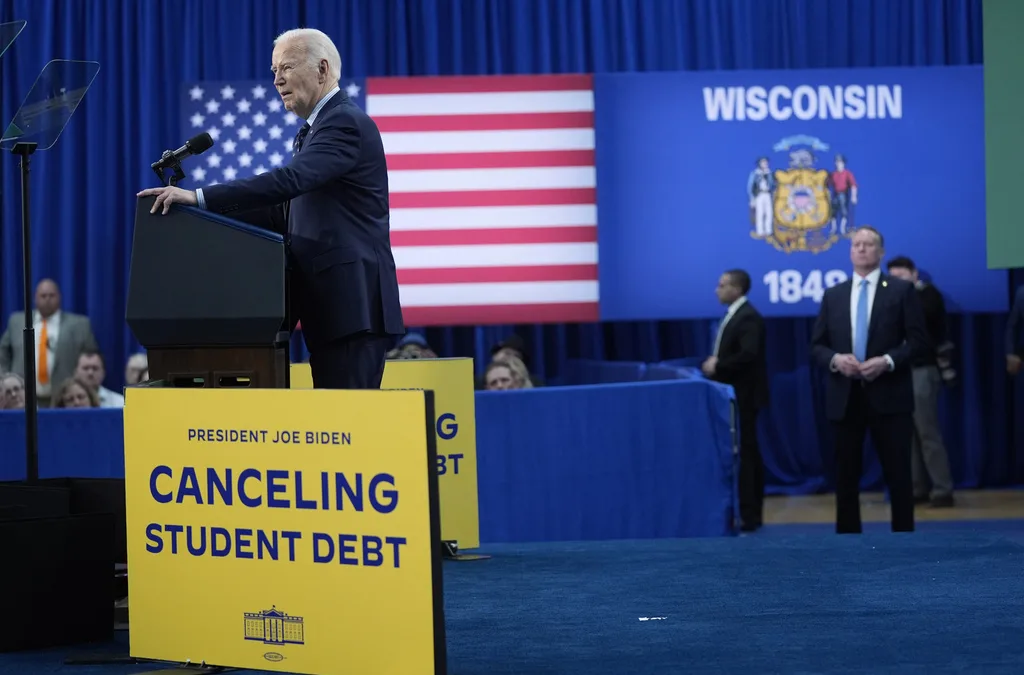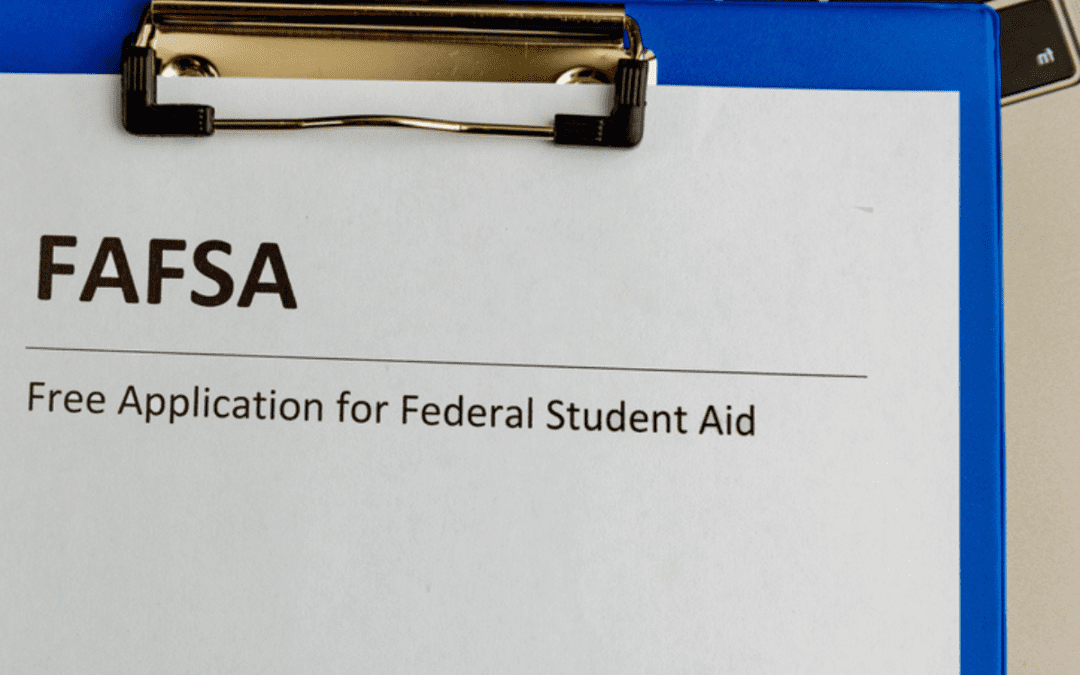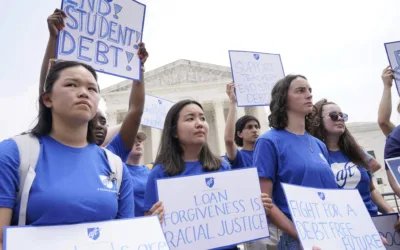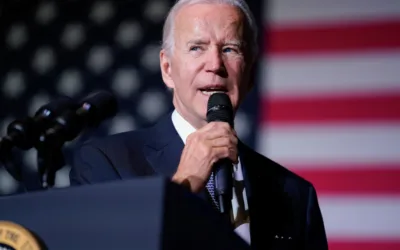
Tohono O’odham Community College graduates gather for a photo in Sells, Arizona. (Photo courtesy of Tohono O’odham Community College)
Tohono O’odham Community College (TOCC) stands as more than just an institution of higher learning for students. It’s vital for Native students across the state of Arizona.
TOCC alum and University of Arizona law student Winona Little Owl-Ignacio, who is Lakhota and Tohono O’odham, says the community college gave her more than a degree—it gave her a foundation of higher education rooted in culture, values, and identity.
Now, that foundation is under threat. The Trump administration’s “One Big Beautiful Bill Act” would slash tribal college funding from $182 million to just $22 million, a roughly 90% cut, next fiscal year, despite treaty obligations and already chronic underfunding.
Want Arizona news in your inbox each morning? Sign up for our free newsletter.
This cut could force tribal colleges across the country to close their doors—putting institutions like Tohono O’odham Community College (TOCC) at risk, and threatening educational access for thousands of Native students across Arizona.
“Cutting funding for tribal colleges is not only hurting the students that are enrolled now or maybe enrolled next semester, but it’s going to affect the generation of students to come,” Jasmine Lopez, a TOCC alum and University of Arizona management information systems student, who is Tohono O’odham, told The Copper Courier. “Without TOCC, I would have not known where to start at university and exactly what college has to offer.”
While the Interior Department’s appropriation bill passed both the Senate and House Appropriations Committee, neither specified an allocation for tribal colleges and universities.
“We still don’t know what’s going to happen,” Stephen Schoonmaker, president of TOCC, told The Copper Courier. “We do the best we can with the funding we get, we defer maintenance often … we’re here to serve our students, and so we’re going to do that with what we have.”
Leaders, students, and advocates warn that the impact would be devastating—not just to education, but to tribal sovereignty, cultural survival, and community development in Native nations.
Federal funding makes up about three-quarters of all tribal college and university funding, but Congress is already underfunding tribal colleges by a quarter-billion dollars per year, according to a ProPublica investigation.
“Tribal colleges are a movement. It’s a movement that is pushing back on history. It is part of our self determination,” Gabriella Cázares-Kelly, Pima County Recorder and former academic advisor at TOCC, who is Tohono O’odham, told The Copper Courier.
READ MORE: ASU Powwow bridges generations amid threats of Indigenous cultural erasure
The level of education is the same as you would get at a regular community college, which is the same you would get at a university, it’s just more accessible in tribal communities—and in a community that already struggles with high poverty rates, education resources are so important, Cázares-Kelly said.
“Tribal colleges are even more than a college, we also are the catalyst for economic development, and we are the revitalization of a culture that otherwise would be endangered and could be lost,” Schoonmaker said.
TOCC is one of four tribal colleges in Arizona. Others include Diné College, Navajo Technical University, and San Carlos Apache College. TOCC’s main campus is located on the Tohono O’odham Nation in Sells, Arizona.
The college is primarily online, and offers 18 fields of study for an associate’s degree—students enrolled in a federally recognized tribe pay no tuition.
And prior to the federal budget bill, TOCC has grown in popularity and admissions. This year’s commencement saw the college’s largest graduating class to date, with more than 100 students.
Culture is interwoven into the programs, and the O’odham Himdag, or values, such respect for the land and spiritual beliefs, are part of how the school operates. These are foundations that colleges like Pima Community College don’t have, Little Owl-Ignacio said.
Indigenous culture and knowledge is welcomed into academic spaces at tribal colleges, Lopez said. “No matter what subject it was, we had a way to tie it into indigenous knowledge.”
Tribal colleges were established under the Tribally Controlled Community College Assistance Act of 1978 and operate under treaty and trust obligations that guarantee inflation-adjusted funding based on enrollment.
Generations of families have received an education at TOCC, Little Owl-Ignacio’s mother and older sister both graduated from the institution. “Our culture provides a backbone to our students and to our people,” she said.
Without federal funding, Native American students’ access to education would be restricted, and tribal colleges would not be able to sustain their current operations as colleges created to serve students disadvantaged by the United States’ longstanding mistreatment of Indigenous communities.
“There’s nothing political about what we’re doing, there’s nothing controversial in what we’re doing,” Schoonmaker said. “We’re truly educating the future workforce that this country needs.”
Any cuts to tribal funding will be detrimental, it could cost a building, it could cost classes, it could cost a shuttle, Cázares-Kelly said. “We’ve paid in land and in blood and in loss, and we’ve paid a really heavy price. It’s not free, and we deserve good things, and we deserve to thrive.”
This story has been updated to reflect the sources’ tribes.
Support Our Cause
Thank you for taking the time to read our work. Before you go, we hope you'll consider supporting our values-driven journalism, which has always strived to make clear what's really at stake for Arizonans and our future.
Since day one, our goal here at The Copper Courier has always been to empower people across the state with fact-based news and information. We believe that when people are armed with knowledge about what's happening in their local, state, and federal governments—including who is working on their behalf and who is actively trying to block efforts aimed at improving the daily lives of Arizona families—they will be inspired to become civically engaged.


Biden unveils new plan for student debt relief
The Biden-Harris Administration on Monday unveiled new plans to relieve student debt for more than 30 million borrowers. During appearances across...

78,000 public service workers get student loans canceled by Biden administration
Through improvements to the public service Loan Forgiveness Program, the Biden administration has canceled loans for more than 871,000 public...

Navigating the new FAFSA? Here’s what you need to know.
Right now, kids and parents across the US are sitting down with calculators, hoping they'll be able to afford college this fall. And most of them...

Arizonans get relief as Biden cancels nearly $5 billion more in student debt
The Biden administration on Wednesday announced that it approved the cancellation of nearly $5 billion in additional federal student loan debt for...





